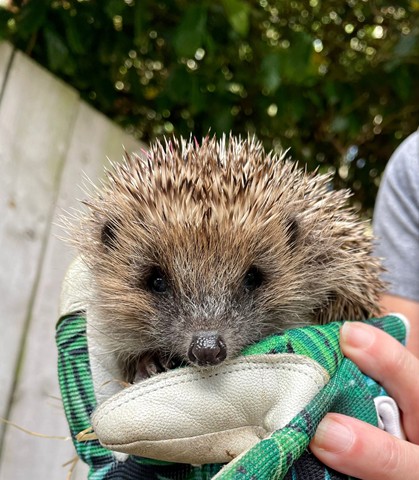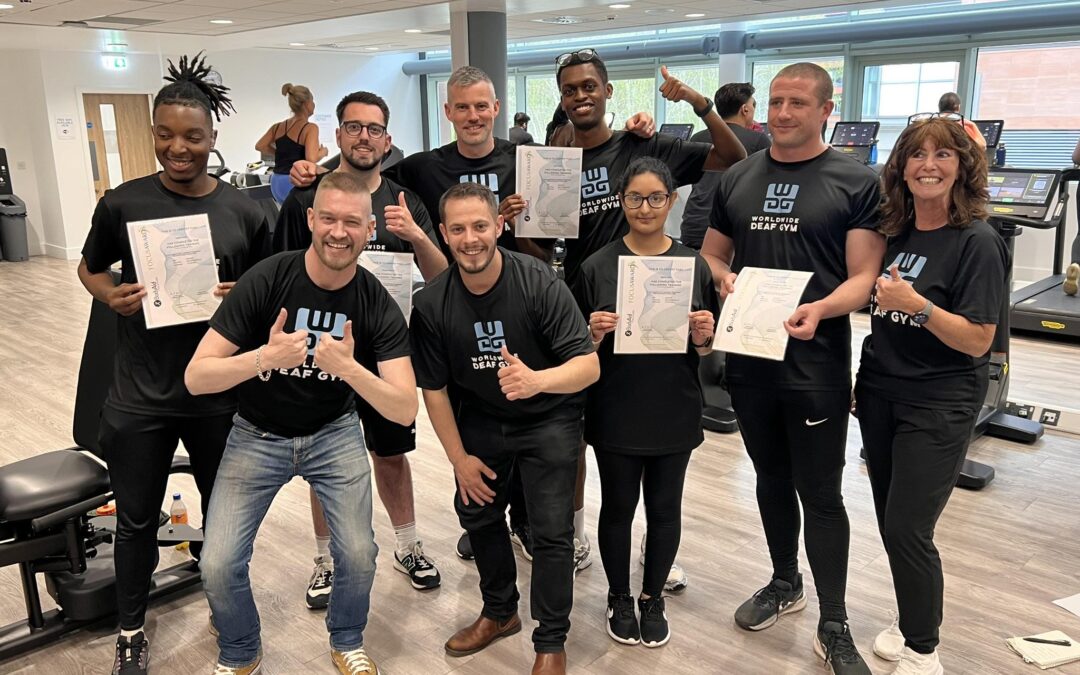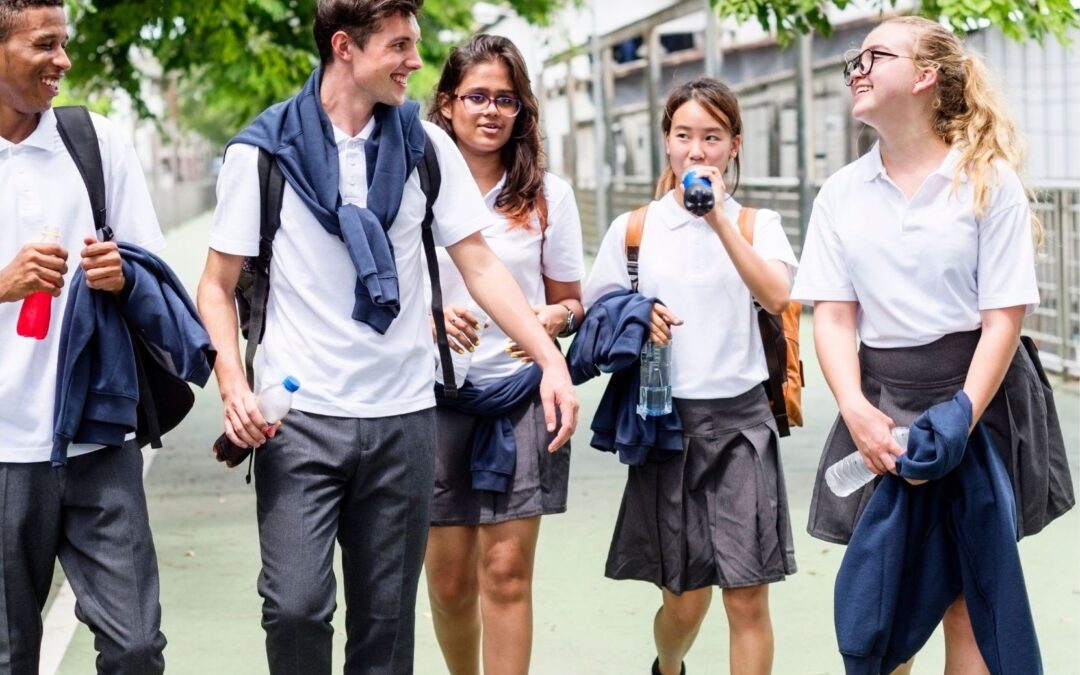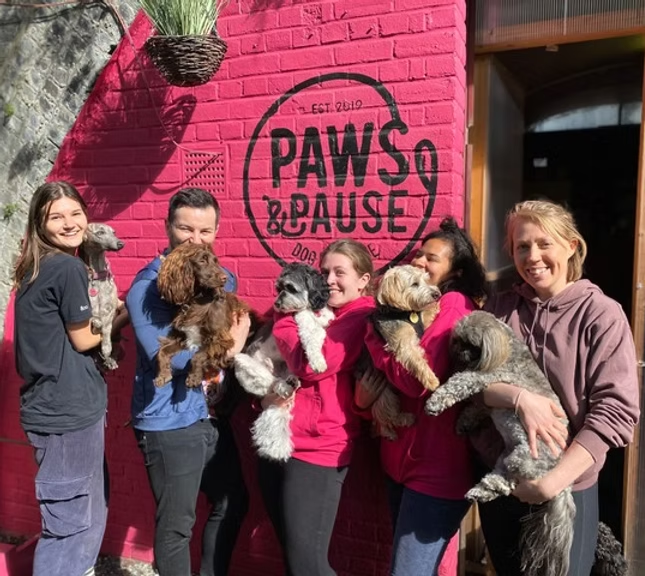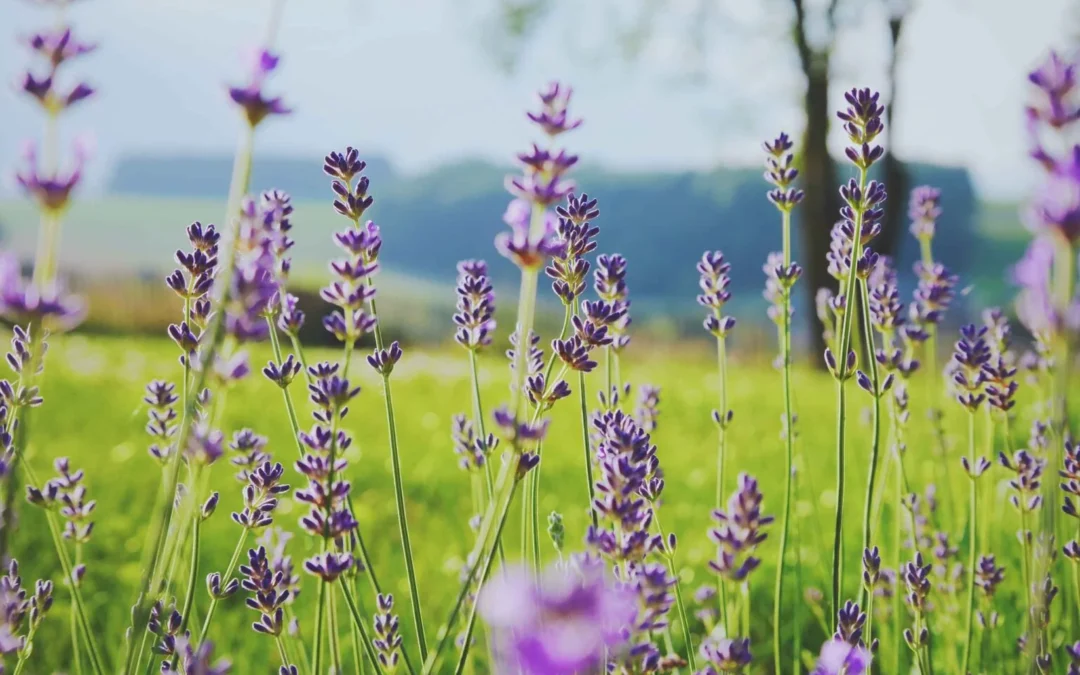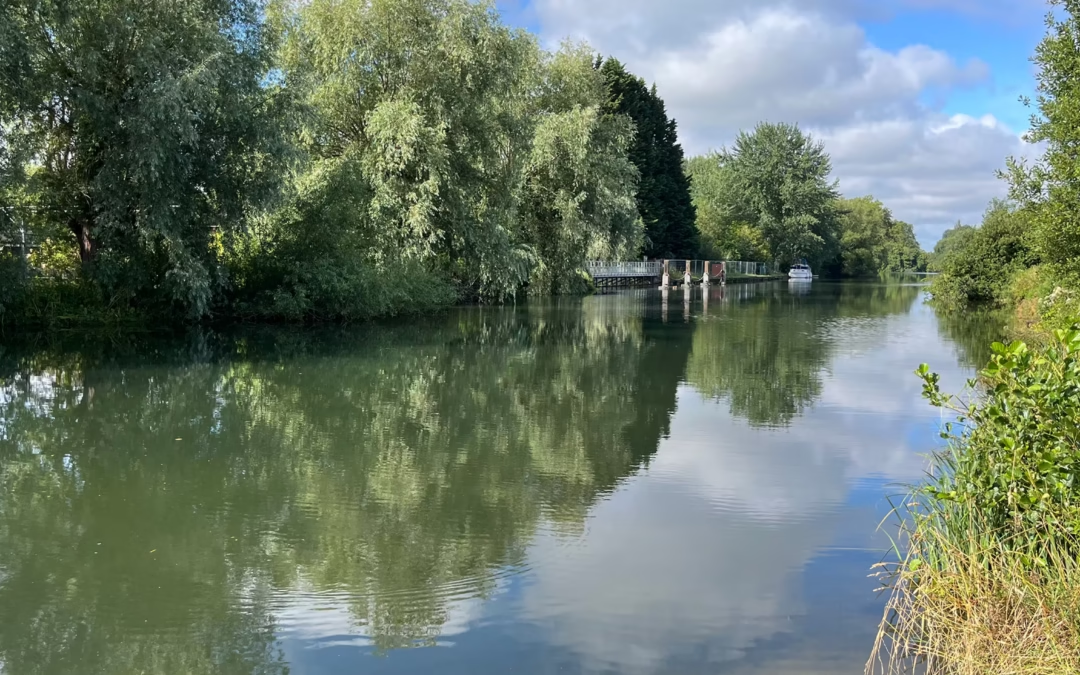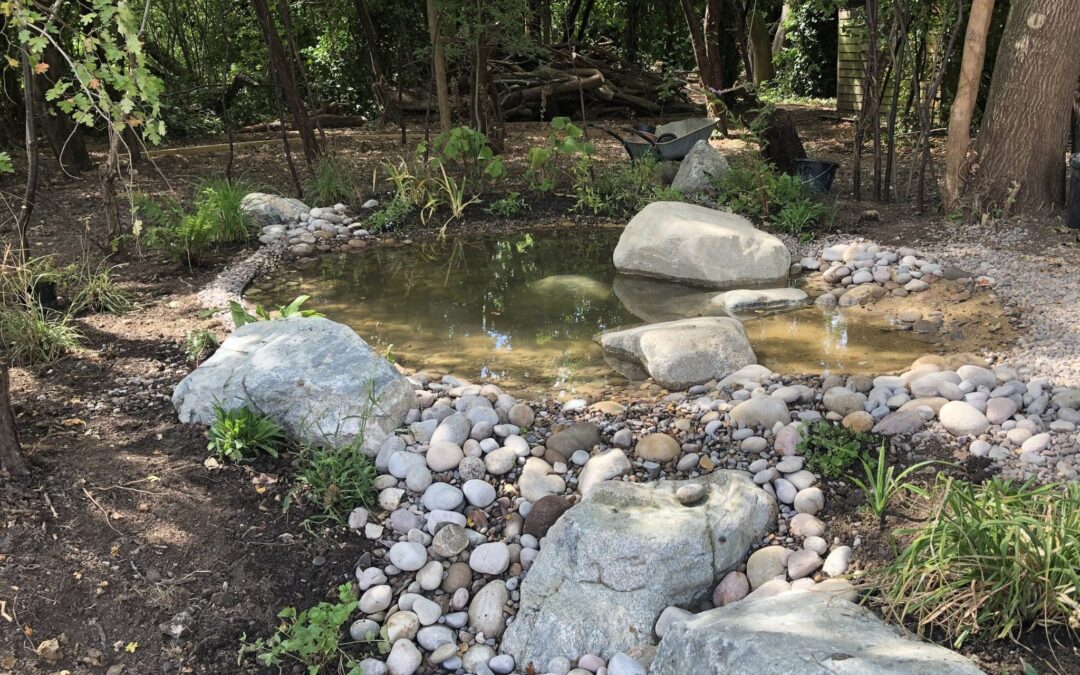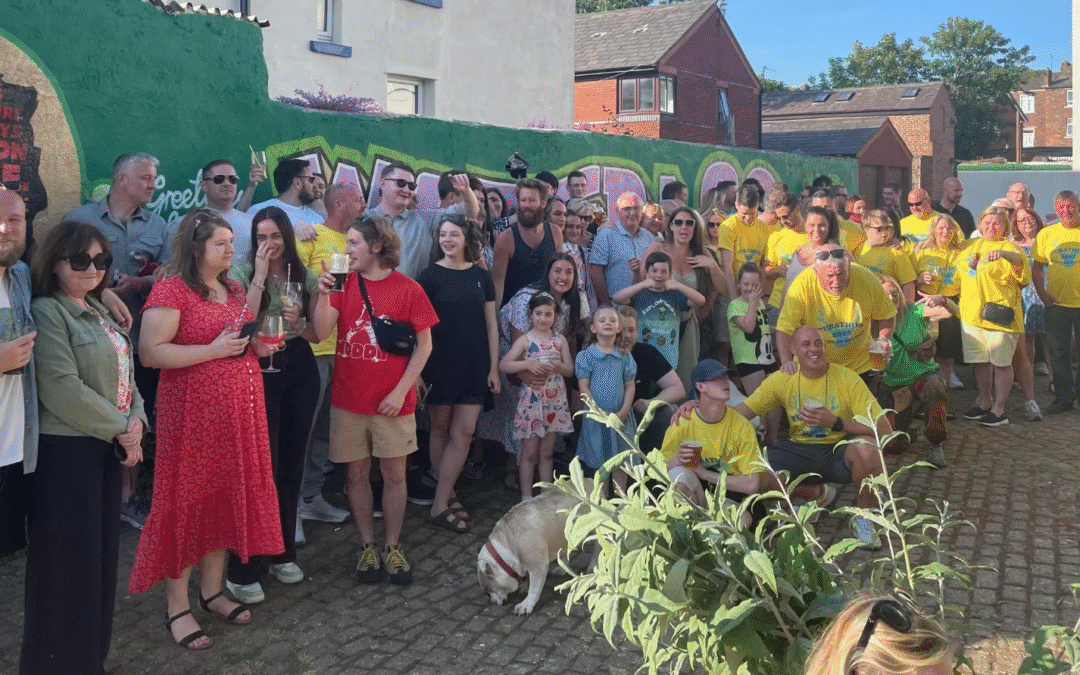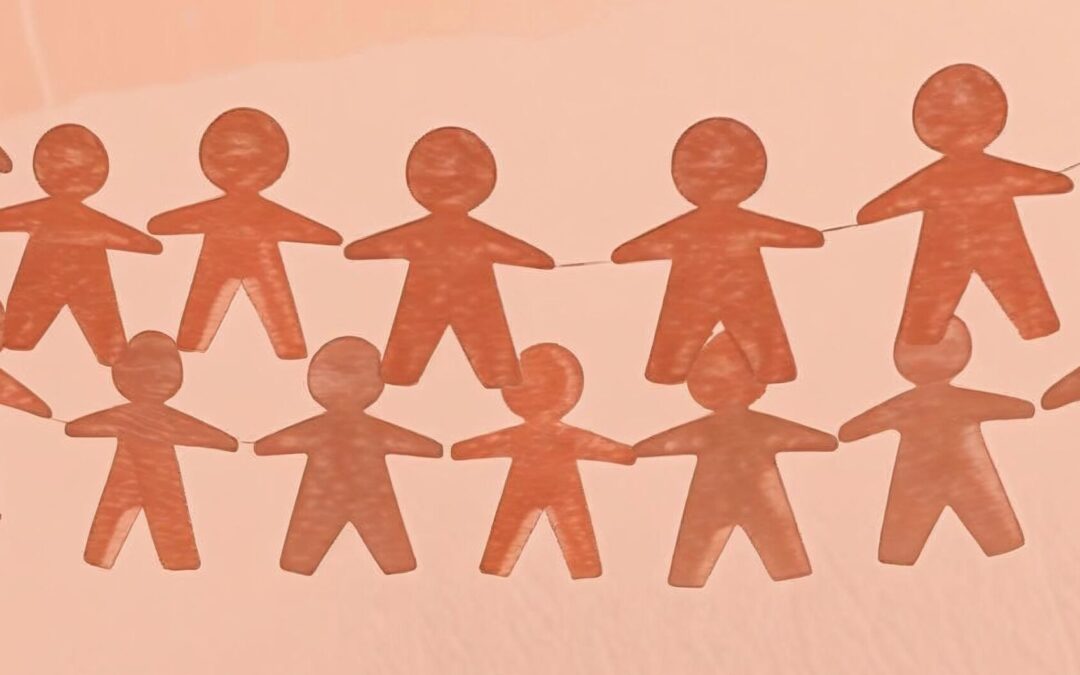Grants for Good
Funding for small charitable organisations
Grants for Good is funded by the John Good Group and is designed to direct funding only to small and growing local charities, voluntary groups or social enterprises that are making a big impact on communities, people or the environment. To be eligible for our small charity funding, applicants must:
- Be a UK-based local community group, charity, voluntary group or social enterprise
- Have an annual income of less than £50,000.
- Have a bank account in the organisation’s name.

An easy applications process.
We appreciate that it can be really hard work and a steep learning curve when you are starting out a new charity or project. Attracting small charity funding from a funder that is right for you can often be difficult to find and manage due to demanding applications processes and inflexible funding restrictions.
This programme, funded by the John Good Group, offers unrestricted funds that you can use for any of your organisation’s costs, including core running costs, and our applications process is a short and as simple as possible, which is great for those looking to make their first steps into applying for their first funding opportunity. We do get a lot of applications though – so please read though our advice section – which will help you give your application the best chance of being shortlisted.
How it works
The Grants for Good Fund awards £60,000 of small charity funding annually between twenty non-profit organisations. The applications cycle runs quarterly, meaning every three months, we will share £15,000 between five shortlisted projects.
Shortlisted projects will receive one of the following amounts, dependant on the result of John Good Group’s employee vote:

1st
PLACE
£5,000
2nd
PLACE
£3,500
3rd
PLACE
£2,500
4th & 5th
PLACE
£2,000
When is it awarded?
Charities and organisations are welcome to apply all year around – and your application will be considered in the next funding round. Our annual cycle always looks like this:
16 December – 15 March
Applications for funding announced in May/June
16 March – 15 June
Applications for funding announced in August/September
16 June – 15 September
Applications for funding announced in November/December
16 September – 15 December
Applications for funding announced in February/March
Please note – we receive a lot of applications, and it can take our small team a long time to process these, so we cannot commit to a specific date the funding will be awarded, but we aim to do this within three months of the deadline for each round.
Step 1: Longlisting
At the end of each applications window, the Grants for Good panel process applications into a longlist. Longlisted organisations will be contacted for the next stage of the process.
At this stage we get to know your organisation a little better by approaching your named referee for a reference, holding a very informal, short meeting with you (usually by video call) to discuss your project further, and conducting our due diligence checks.
Step 2: Shortlisting
The Grants for Good panel will decide on the final five projects to receive a share of £15,000. At this point we will let you know you have successfully made the shortlist and will be awarded an amount between £2,000 and £5,000.
If you did not make our shortlist – we will email you to let you know. You will not need to re-apply, as your application will still be considered in future rounds. However, you may apply again later if your project requirements change, and you are still eligible.
Step 3: Member Voting
We will use all the information we have gathered on your project to build a feature page on our website (which we will send to you for approval), which will be shared with employees of the John Good Group who will then vote for their favourite. Voting takes place internally at the John Good Group and the results will not be visible until the end of the vote.
Step 4: Results
As soon as the vote closes, we will let you know the outcome of the vote and transfer your funding award. The Foundation and the John Good Group will also announce the shortlist and winners on their public platforms.
Step 5: After the results
After the results have been announced – your project page will remain on the Grants for Good section of our website. We will contact you a few times in the years following your small charity funding award to check on the progress and impact your project is making. This helps us measure the impact of our funding, and we also love to help you to share any good news from your organisation.
Making the most of your small charity funding application
Whilst applying is a quick and easy process – you will still need to make your application stand out amongst the many applications we receive for small charity funding in every round. Here are some tips from us for how you can make your application shine:
Demonstrate innovation
We know that the emerging needs of a community begin to be addressed by grassroots initiatives like yours, the people who are close to the issue and know how to help. A project that is being proactive in finding new and innovative ways to solve problems is more likely to stand out and be shortlisted for our small charity funding.
Prove scalability
One of the major reasons we target funding at small charities is because of the potential they have to grow their impact. We are as excited about your big aims as you are, and we want to help you get started on that path. Tell us what your aims are and prove to us that there is a need for your charity to grow, and that will help push you up the shortlist.
Show strong leadership
Don’t be afraid to tell us exactly why you personally are going to make a success of your project. Maybe you have a deep personal reason for starting out this project, or maybe you have a wealth of experience that makes you very effective at what you are doing. Whatever it is, don’t be shy, let us know. When we can see the leadership of an organisation is highly effective, your application is more likely to be shortlisted.
Tell a compelling story
The reasons behind forming a small charity are often based on very authentic personal experiences. Do not underestimate the power of your own story. When we can see the genuine reasons a charity began and how things have developed from that to where you are now, we can see how powerful your cause is and you are more likely to get shortlisted.
Highlight the impact
Many funders will ask for a lot of detail about impact in their application processes. The reason for this is that they have to prove the return they get on their investment. Whilst complicated impact statistics are not required for Grants for Good – the more clearly we can see what the outcomes will be from receiving small charity funding, the more likely your project is to be shortlisted. Be as specific as you can, and try to give actual amounts that relate to the funding amounts we award (£2,000 – £5,000). For example, if helping one person might cost £100, you could help 20 people with our smallest grant or 50 with our largest.
Ready to apply?
Please click the button to head over to our online application form! Applications cannot be saved and returned to later – so please make sure you are ready to complete it in one go. You will be sent a copy of your application, and any updates using the email address you give us.
Grants for Good Projects
Holderness Hedgehog Hospital
Holderness Hedgehog Hospital in East Yorkshire is dedicated to rescuing, rehabilitating, and releasing sick or injured hedgehogs. The volunteer-led charity combines hands-on care with community education to protect local wildlife. Each year, the team responds to dozens of emergency rescues while inspiring local residents to take an active role
Worldwide Deaf Gym
Worldwide Deaf Gym is a deaf-led organisation making fitness more accessible for deaf and hard-of-hearing people across the UK. Their work has two goals: to ensure deaf people can enjoy equal access to fitness and wellbeing services, and to create career opportunities by training deaf personal trainers to lead
Respected
In today’s climate of online pressures, misinformation, and harmful influences, young people face real risks in relationships and online. Respected equips 11–16 year olds to make informed, healthy choices about relationships and sex. Founded by a GP from Dorset, the programme blends short films with class activities so teachers
Paws & Pause
Paws & Pause Training CIC is an innovative London-based social enterprise turning the unconditional love of dogs into a stepping-stone for people recovering from mental ill-health or substance use. Their “Paws to Employability” programme provides 6-month traineeships where participants gain life changing skills and confidence in dog care, plus
Bright Green Nature
Bright Green Nature is a Scotland-based charity connecting communities with nature across the Scottish Borders. Through hands-on restoration projects in gardens, schoolyards, and community spaces, the organisation empowers people of all ages to build biodiversity, confidence, and skills. Their inclusive programmes - Wild Your Space, Young Rewilders Forum, and
Friends of the Thames
Friends of the Thames is a charity restoring the River Thames through community action, science, and collaboration. They believe a clean, thriving river is a public right, and that the Thames is a living system, cultural icon, and shared responsibility. Their work reconnects communities with the river, builds a
Wild Rangers
Based in South East London, Wild Rangers connects people of all ages to nature through creative, hands-on experiences. With a strong local presence and deep community roots, their work is transforming forgotten green spaces into thriving places for wildlife and wellbeing. From outdoor learning sessions to ambitious environmental regeneration,
Let’s Do Veterans Support
Let’s Do Veterans Support & Rehabilitation is a small charity based in County Down, Northern Ireland. Founded by veterans, for veterans, it supports ex-members of the Armed Forces and emergency services as they recover from injury, trauma, and isolation. Through outdoor experiences, fishing retreats and community-based activities, Let’s Do
Sudden Sam
Based in the Liverpool City Region, Sudden Sam is a community-rooted charity offering emotional, financial, and practical support to families affected by sudden death. Born from personal tragedy, the charity is now a beacon of hope and healing, helping others navigate the complex aftermath of loss. By combining therapy,
DSD Families
DSD Families is a national charity supporting children and families affected by Differences of Sex Development - a group of rare conditions where a person’s chromosomes, reproductive organs, or hormone levels develop differently from typical patterns. In the UK, a baby is born with a DSD condition every three
FAQs
Projects that apply for small charity funding thorugh Grants for Good are always unique projects with their own set of circumstances – so we know you will probably have some questions! We’ve tried to answer the questions we get most often below, but if you still don’t have your answer, please email us on info@matthewgoodfoundation.org
Is my project likely to be funded?
We’re most likely to fund projects that:
- Bring fresh, innovative ideas to life
- Create lasting, meaningful impact
- Focus on people, planet, or both
- Show strong leadership – through lived experience, knowledge, or commitment
While we welcome a wide range of applications, Grants for Good is very competitive, receiving more than 400 applications in each round. For this reason, projects that are less likely to be shortlisted include:
- Equipment for sports or music clubs
- Projects linked to major organisations (e.g. Brownies, Scouts)
- Seasonal events (e.g. summer fetes or Christmas lights)
- Day to day costs of community centres/village halls
- Day to day costs of food banks
- PTAs or ‘Friends of’ school groups
- Work that is the primary responsibility of statutory bodies
If your work falls into one of these areas, you are still welcome to apply for this small charity funding if you feel your project strongly aligns with our priorities and has the potential for broader, lasting impact. Every application is reviewed with care.
If you fall into one of these categories but still want to apply, we strongly recommend reading our bid writing tips article for further advice before applying.
How can I increase my chances of being shortlisted?
Firstly, make sure you have read all our eligibility criteria and can provide the evidence required. Secondly, read our bid writing tips article for tips on how to make your application stand out. Finally, you may wish to look at some of our previous shortlisted organisations to get an idea of what a successful project looks like.
Is there any type of organisation that is not eligible?
Grants for Good does not grant funds to:
- Individuals
- Activities promoting political or religious beliefs.
- Sponsorship / fundraising events
- Amateur or private sports clubs
- Organisations with an income of more than £50,000 in the last 12 months
Do you support projects outside of the UK?
We cannot support organisations registered outside of the UK, but we actively encourage applications for UK registered charities that mare making a difference to people and planet with overseas operations.
Are CICs eligible?
Yes, Community Interest Companies are welcome to apply for Grants for Good.
Do you make grants to individuals?
Sorry, we do not make grants to individuals. Your application must be on behalf of a community group, organisation or charity.
Do you make grants to sports clubs?
We do not accept smal charity funding applications from private or amateur sports clubs, unless they meet one of the following criteria:
- The club helps those who may otherwise be excluded from mainstream sport due to cost, disability, lack of resource etc.
- The project the club is applying for extends the offering of the sports club to offer additional facilities that are for the wider benefit of the local community or environment
Does my organisation have to be a registered charity?
Whilst it is really helpful to be a registered charity, we know that organisations like yours are at the start of their journey or may not be in a position to register. Unregistered organisations are very welcome to apply for this small charity funding so long as they meet all our criteria. You must also have a bank account in the name of your organisation as we cannot provide funds to personal accounts.
Do I need a bank account?
Yes, you must have a bank account in the name of your organisation. We cannot provide funds to personal accounts.
What if I don't have a full year of accounts?
If you don’t have a full year of accounts because your organisation is new, please let us know what income you have achieved so far in your first year and explain more in the notes section.
Have you received my application?
You should receive an automated email after submitting your application, confirming that your application has been recorded in our system. Please make sure you check your junk folder before getting in touch. If for any reason you did not receive the email, please email us letting us know when you applied and we will let you know if we received your application.
Can I get a copy of my application?
A copy of your application will be sent to you in your automatic confirmation email.
What is the result of my application?
We will email all applicants to let them know the result of your application. We aim to do this within two months of each deadline – but it can sometimes take our small team a little longer. Please make sure you have checked which funding round your application has gone into and when results are predicted by reading the “when is it awarded” section above.
Can I apply again if unsuccessful?
We receive hundreds of small charity funding applications in each round, and many fantastic projects don’t make our shortlist. However, all applications from eligible organisations will remain in our applications pool and may be shortlisted on a future round, so you do not need to reapply. The only time we recommend reapplying is if the needs of your project change significantly and you would like us to consider your application with the new information.












